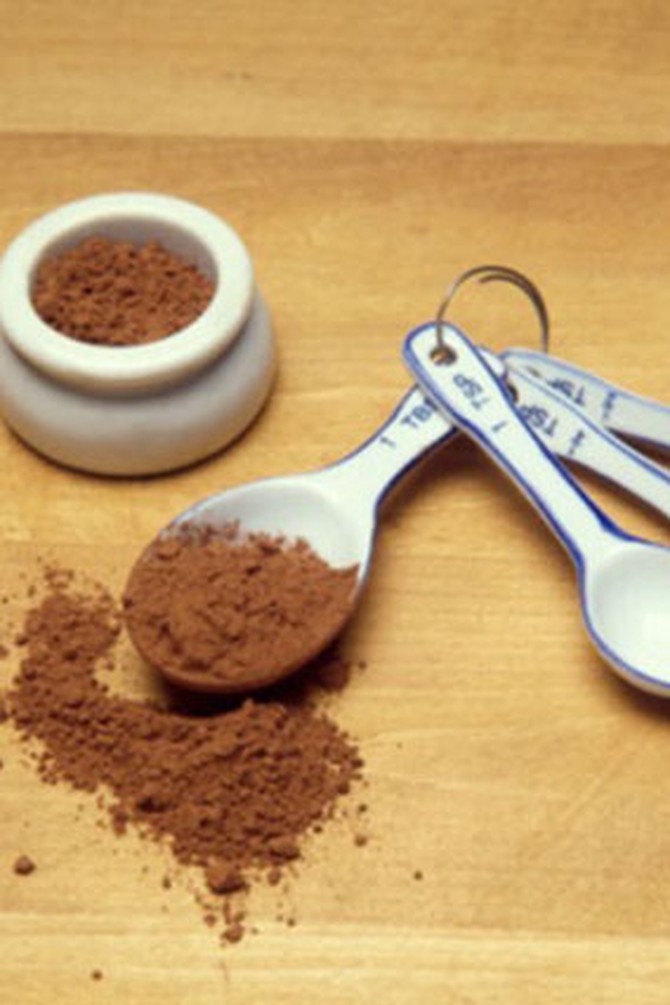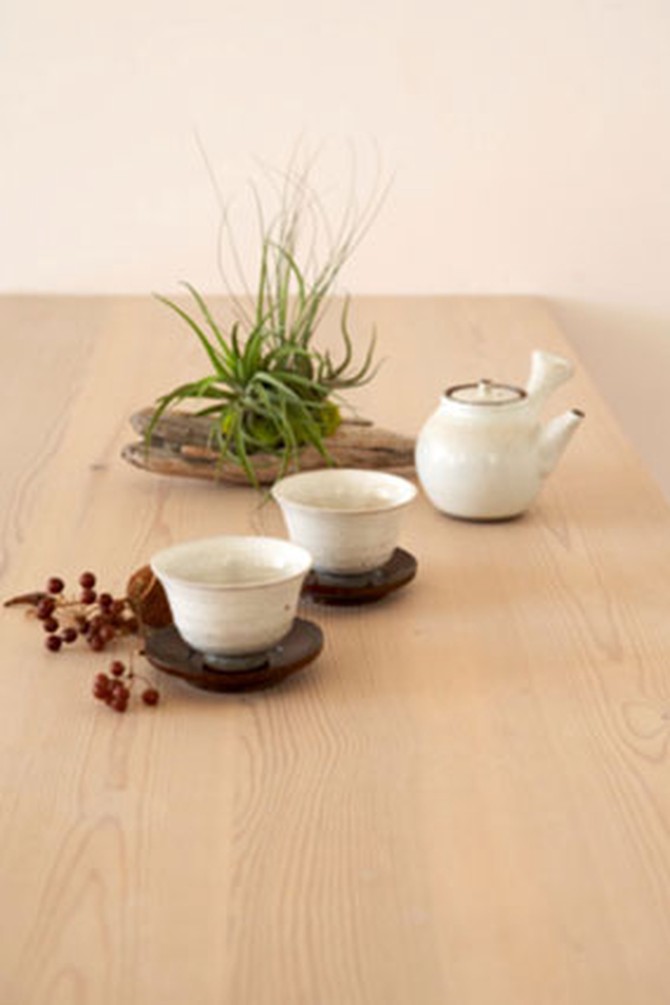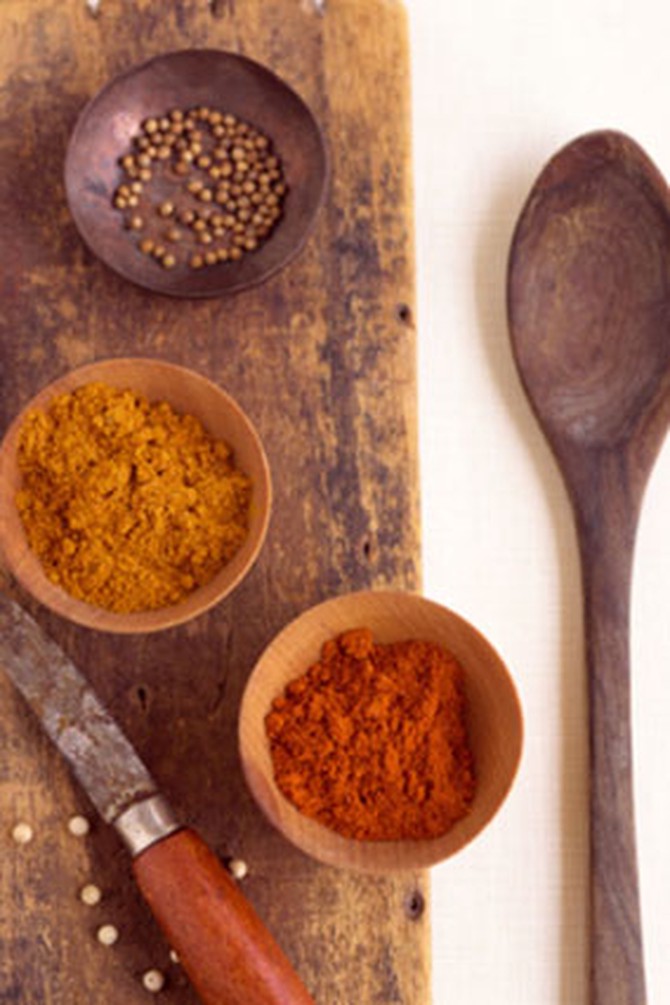Dr. Oz's 6 Health Secrets from Around the Globe
By Dr. Mehmet Oz

Photo: Dan Saelinger
From the Japanese to the Russians, the Greeks to the Kuna Indians of Panama, every culture has its own secrets to better health and longer life. These traditional remedies and practices—like drinking a calming herbal tea or cooking with a particular spice—might seem inconsequential, but researchers are discovering that these little things can make a world of difference. Try importing these six habits, all worth bringing home.

Photo: Thinkstock
Panama
The Secret
Harvard professor Norman Hollenberg, MD, PhD, has spent years studying the Kuna, an indigenous tribe on the San Blas Islands who drink five cups or more of unprocessed cocoa a day. He discovered that compared with residents of mainland Panama, who generally drink nutrient-poor grocery store cocoa, the islanders' risk of cancer, diabetes, stroke, and heart disease is reduced to less than 10 percent. They can likely thank cocoa's flavonoids, powerful antioxidants with a host of cardiovascular benefits.
The Prescription
For a heart-healthy beverage, stir a touch of honey and a tablespoon of pure cocoa powder (flavonoids are often removed from processed powders) into a cup of warm milk.
Harvard professor Norman Hollenberg, MD, PhD, has spent years studying the Kuna, an indigenous tribe on the San Blas Islands who drink five cups or more of unprocessed cocoa a day. He discovered that compared with residents of mainland Panama, who generally drink nutrient-poor grocery store cocoa, the islanders' risk of cancer, diabetes, stroke, and heart disease is reduced to less than 10 percent. They can likely thank cocoa's flavonoids, powerful antioxidants with a host of cardiovascular benefits.
The Prescription
For a heart-healthy beverage, stir a touch of honey and a tablespoon of pure cocoa powder (flavonoids are often removed from processed powders) into a cup of warm milk.

Photo: Thinkstock
Japan
The Secret
The Japanese live longer than almost anyone else on the planet—and this may be largely because their country has one of the lowest obesity rates in the world. One of their tricks for calorie control is a cultural practice known as hara hachi bu, which means eating until you feel about 80 percent full. At that point, your stomach is likely 100 percent full; your brain just doesn't know it yet.
The Prescription
Try to chew your food 20 times before you swallow. Slowing the pace of your eating makes it easier to recognize that 80 percent full feeling.
The Japanese live longer than almost anyone else on the planet—and this may be largely because their country has one of the lowest obesity rates in the world. One of their tricks for calorie control is a cultural practice known as hara hachi bu, which means eating until you feel about 80 percent full. At that point, your stomach is likely 100 percent full; your brain just doesn't know it yet.
The Prescription
Try to chew your food 20 times before you swallow. Slowing the pace of your eating makes it easier to recognize that 80 percent full feeling.

Photo: Thinkstock
Russia
The Secret
Golden root, or Arctic root (a.k.a. Rhodiola rosea)—an herb that grows at high elevations in the harsh environs of the Arctic region—is a traditional Russian remedy used to treat ailments ranging from infections and altitude sickness to depression and nervous system disorders. The extremely resilient plant is known to be an adaptogen, meaning it helps the body adapt to stressors; scientific studies indicate that it can indeed boost endurance and mood while lessening stress and fatigue.
The Prescription:
Pick up the root at a natural foods store and use it to brew a cup of tea whenever you need to de-stress.
Golden root, or Arctic root (a.k.a. Rhodiola rosea)—an herb that grows at high elevations in the harsh environs of the Arctic region—is a traditional Russian remedy used to treat ailments ranging from infections and altitude sickness to depression and nervous system disorders. The extremely resilient plant is known to be an adaptogen, meaning it helps the body adapt to stressors; scientific studies indicate that it can indeed boost endurance and mood while lessening stress and fatigue.
The Prescription:
Pick up the root at a natural foods store and use it to brew a cup of tea whenever you need to de-stress.

Photo: Thinkstock
Netherlands
The Secret
The Dutch ride bicycles as a form of everyday transportation. Almost one-third of all trips are made on two wheels, and each citizen pedals an average of 1.5 miles per day. A 2010 statistical review of Dutch drivers found that they'd live up to 14 months longer by switching to cycling for short trips on a daily basis, thanks to the extra exercise.
The Prescription
Cycle to work a few times a week, run errands on your bike, or just go for a joy ride. We know that 30 minutes of this kind of moderate physical activity at least three times a week can slash your risk of heart disease, diabetes, and some cancers.
Keep Reading: An 8-step bicycling refresher course
The Dutch ride bicycles as a form of everyday transportation. Almost one-third of all trips are made on two wheels, and each citizen pedals an average of 1.5 miles per day. A 2010 statistical review of Dutch drivers found that they'd live up to 14 months longer by switching to cycling for short trips on a daily basis, thanks to the extra exercise.
The Prescription
Cycle to work a few times a week, run errands on your bike, or just go for a joy ride. We know that 30 minutes of this kind of moderate physical activity at least three times a week can slash your risk of heart disease, diabetes, and some cancers.
Keep Reading: An 8-step bicycling refresher course

Photo: Thinkstock
India
The Secret
A large percentage of Indian meals contain curry powder, and curry contains turmeric—a spice that has been used in Ayurvedic medicine for thousands of years. Now research shows that turmeric may help prevent Alzheimer's disease because of its antioxidant and anti-inflammatory action and immune-boosting properties—all of which may help to block or remove plaque from the brain. It's not surprising that one of the lowest rates of Alzheimer's ever reported was found in northern India.
The Prescription
Incorporate more vegetable and chicken curry dishes into your diet—at least one a week. And go heavy on the turmeric.
A large percentage of Indian meals contain curry powder, and curry contains turmeric—a spice that has been used in Ayurvedic medicine for thousands of years. Now research shows that turmeric may help prevent Alzheimer's disease because of its antioxidant and anti-inflammatory action and immune-boosting properties—all of which may help to block or remove plaque from the brain. It's not surprising that one of the lowest rates of Alzheimer's ever reported was found in northern India.
The Prescription
Incorporate more vegetable and chicken curry dishes into your diet—at least one a week. And go heavy on the turmeric.

Photo: Thinkstock
Greece
The Secret
A 2007 study of more than 23,000 Greek adults may have revealed a surprising key to their legendary vigor—the siesta. Compared with those who power through the day, adults who nap for a minimum of 30 minutes at least three times a week have a 37 percent lower risk of dying from heart disease.
The Prescription
If your work schedule doesn't allow you to pencil in a snooze, nap on weekends—every little bit helps.
A 2007 study of more than 23,000 Greek adults may have revealed a surprising key to their legendary vigor—the siesta. Compared with those who power through the day, adults who nap for a minimum of 30 minutes at least three times a week have a 37 percent lower risk of dying from heart disease.
The Prescription
If your work schedule doesn't allow you to pencil in a snooze, nap on weekends—every little bit helps.
Published 07/13/2011

